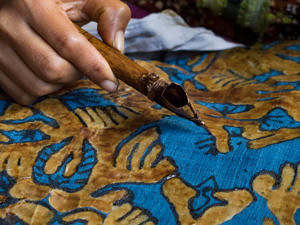What’s in a Name? A Guide to Indonesian Names in 2025
Have you ever met someone from Indonesia and thought, “Wait, do they have just one name? Where’s the last name?” Or maybe you’ve wondered why some Indonesian names sound Arabic while others have Sanskrit roots. As we navigate the increasingly connected world of 2025, understanding diverse naming traditions has never been more relevant. Trust me, you’re not alone in this delightful confusion!
As someone who’s spent years embarrassing myself by butchering Indonesian names (before finally getting them right), I’m here to save you from the same fate. Whether you’re expecting a little one and looking for Indonesian baby name inspiration, researching your family heritage, or just curious about the rich tapestry of names from this fascinating archipelago, this guide is for you!
One Name to Rule Them All: The Single-Name Tradition
Let’s start with something that confuses pretty much everyone: many Indonesians have just ONE name. Not a first name followed by a last name—just one name, period.
My friend Joko (who’s probably laughing as I write this) had to explain this to me about five times before I stopped asking, “But what’s your family name?” There isn’t one! In many parts of Indonesia, particularly Java (the country’s most populous island), having a single name is completely normal.
This single-name tradition is why you might meet Indonesians named simply Suharto, Sukarno, or Widodo. No, they’re not being overly casual or dropping their last names—that’s their full legal name!
Indonesian Last Names: When They Do Exist
Now, before you think you’ve got it all figured out, here comes the plot twist: some Indonesians DO have last names. Indonesian last names often reflect regional traditions, religions, or colonial influences.
Common Indonesian last names include:
- Batak last names like Siregar, Simbolon, and Sitorus (from North Sumatra)
- Minahasan last names like Mandagi, Waworuntu, and Wenas (from North Sulawesi)
- Sundanese last names like Setiawan, Hidayat, and Kusuma (from West Java)
In Bali, the naming system is completely different again! Balinese names often indicate birth order. So if you meet someone named Wayan, you now know they’re a firstborn. Likewise, Made is a second-born, Nyoman is third, and Ketut is fourth. What happens with the fifth child, you ask? They cycle back to Wayan! (I’m not making this up, I promise.)
Indonesian Girl Names: Sweet, Strong, and Significant
Indonesian girl names often carry beautiful meanings related to nature, positive traits, or religious concepts. Unlike in some cultures where gendered names are strictly separate, Indonesian names can sometimes be used for either gender, though many do have traditional gender associations.
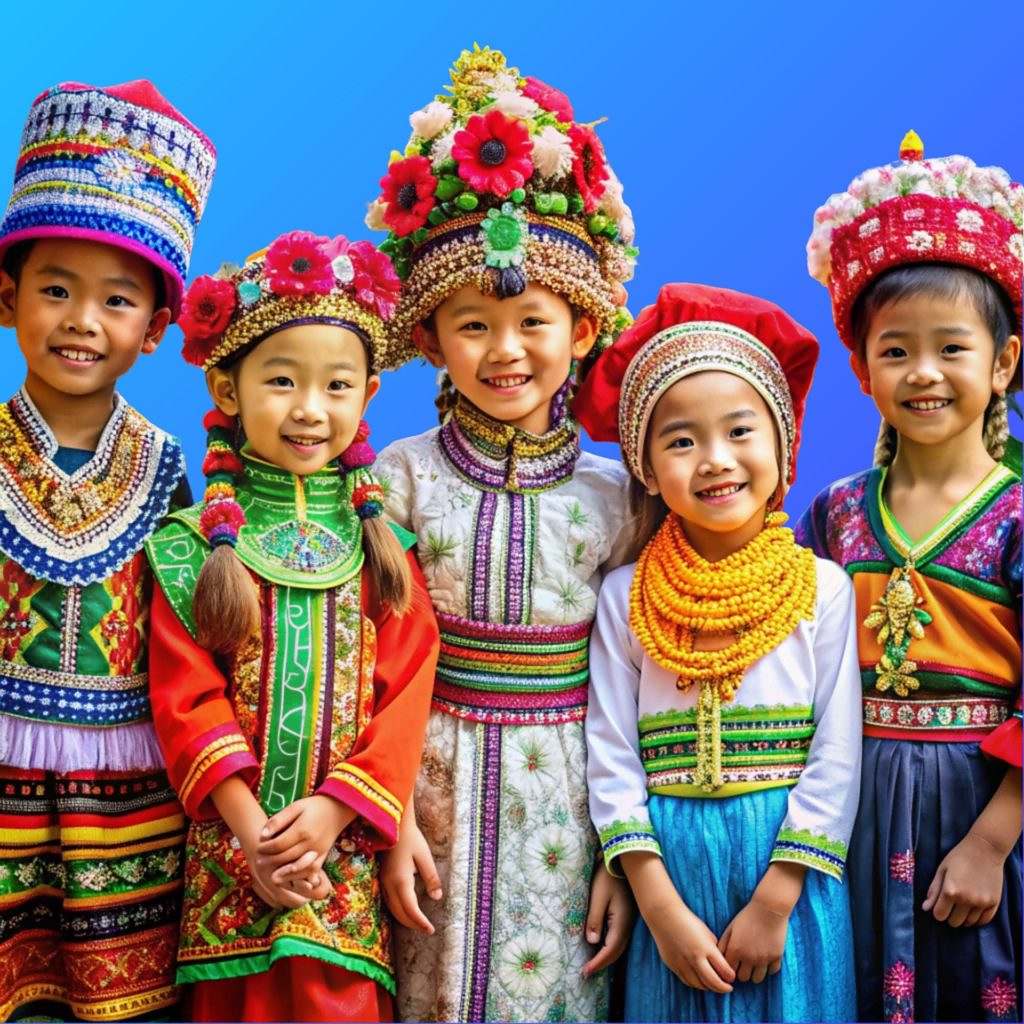
Popular Indonesian girl names include:
- Putri: Literally means “princess” and is one of the most common Indonesian names for girls
- Siti: A Muslim-origin name meaning “lady” that’s widely used across Indonesia
- Dewi: Of Sanskrit origin meaning “goddess,” used commonly in Hindu and Muslim families
- Ratna: Means “jewel” or “pearl” in Sanskrit
- Kartini: Named after Raden Ajeng Kartini, Indonesia’s famous women’s rights pioneer
- Ayu: Means “beautiful” in Javanese and Balinese
- Fitria: Derived from Arabic, meaning “natural” or “innate”
- Novi: Often referring to November or “new”
A friend once told me how her name, Sri, which means “radiance” or “prosperity,” was chosen because she was born during a harvest season. Indonesian names often carry these kinds of personal stories and connections to family hopes and circumstances.
Indonesian Boy Names: Strong, Spiritual, and Sometimes Surprisingly Long
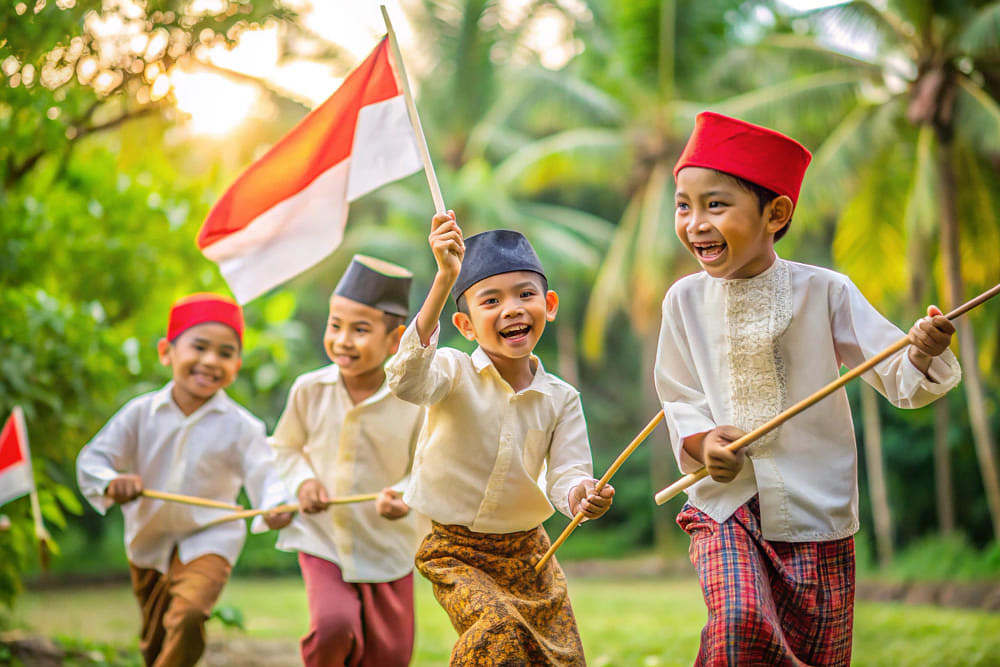
When it comes to Indonesian male names, you’ll find everything from short, punchy names to multi-word combinations that might leave you breathless. Indonesian names for boys often reflect aspirations for strength, success, religious devotion, or noble character.
Common Indonesian boy names include:
- Budi: Means “wise” or “well-mannered”
- Ahmad: A Muslim name that’s extremely common across Indonesia
- Bambang: A traditional Javanese name meaning “knight” or “youth”
- Agung: Means “great” or “magnificent”
- Wayan: The Balinese name for firstborn (can be male or female)
- Eko: Means “first child” in Javanese
- Dimas: A reference to nobility in Javanese culture
- Putra: Means “son” or “prince”
And then there are the marathon names! I once met an Indonesian man whose full name was Mohammad Hatta Rajasa Habibie Sukarnoputra. Try saying that five times fast! He went by “Hatta” in daily life (smart move, if you ask me).
When Indonesian Names Get Fancy: Titles and Prefixes
Just when you thought you were getting the hang of it, Indonesian names throw in another curveball: prefixes and titles that indicate status, region, or family background.
Some common prefixes in Indonesian names include:
- Raden or Raden Mas: Javanese aristocratic titles
- Andi: A Bugis-Makassar (South Sulawesi) nobility title
- Teuku or Cut: Acehnese nobility titles
- I or Ida Bagus: Balinese caste indicators
These prefixes aren’t just for show—they carry historical significance and family heritage. Though in modern Indonesia, especially in urban areas, many people drop these traditional titles in everyday use.
The Melting Pot: How Religion Shapes Indonesian Names
Indonesia is home to the world’s largest Muslim population, but it’s also incredibly diverse religiously. This diversity is beautifully reflected in Indonesian names.
- Muslim-influenced names: Names like Muhammad, Ahmad, Fatimah, and Aisha are extremely common Indonesian names. Muslim Indonesians often choose Arabic names with religious significance.
- Hindu-influenced names: Particularly in Bali, you’ll find names like Krishna, Rama, Dewi, and Lakshmi.
- Christian-influenced names: In regions with significant Christian populations (like North Sulawesi, Papua, or parts of Sumatra), you might meet Indonesians named Maria, Yohanes (John), or Stefanus.
- Indigenous names: Despite religious influences, many Indonesians maintain traditional names from their ethnic heritage, like Javanese names (Bambang, Joko) or Sundanese names (Asep, Cecep).
I once attended an Indonesian wedding where the bride was named Maria Christina (Christian) and the groom was Muhammad Rizki (Muslim). Their nametags at the reception table perfectly symbolized Indonesia’s religious diversity living harmoniously side by side.
Indonesian Female Names: 2025 Trends
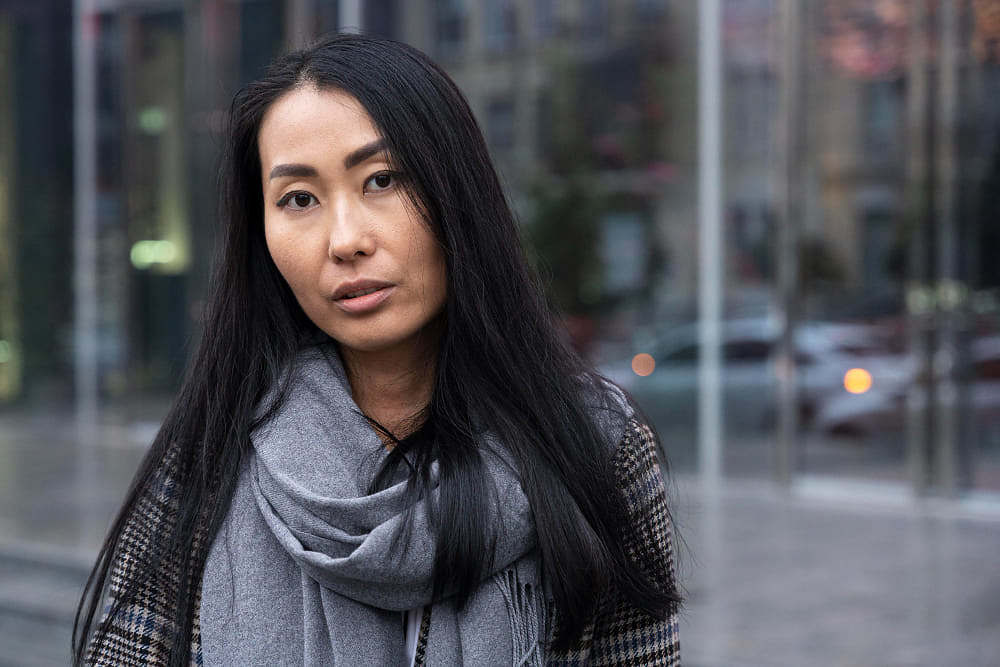
While traditional names remain popular, urban Indonesian women in 2025 are increasingly opting for more modern or international-sounding names. According to the latest Indonesian naming registry data from early 2025, these common Indonesian female names are trending:
- Nabila: Meaning “noble” or “excellent” in Arabic
- Anindita: Sanskrit origin meaning “without limits” or “boundless”
- Keisha: A name that has gained popularity through global influence
- Kirana: Meaning “beautiful ray of light”
- Zahra: Meaning “flower” or “blooming” in Arabic
- Amanda: An internationally recognized name popular in urban areas
- Gayatri: A Hindu goddess name meaning “song” in Sanskrit
When my Indonesian colleague had a daughter, she named her Kirana Zahra, combining both Sanskrit and Arabic influences—a beautiful reflection of Indonesia’s cultural fusion.
Indonesian Male Names: Tradition Meets 2025
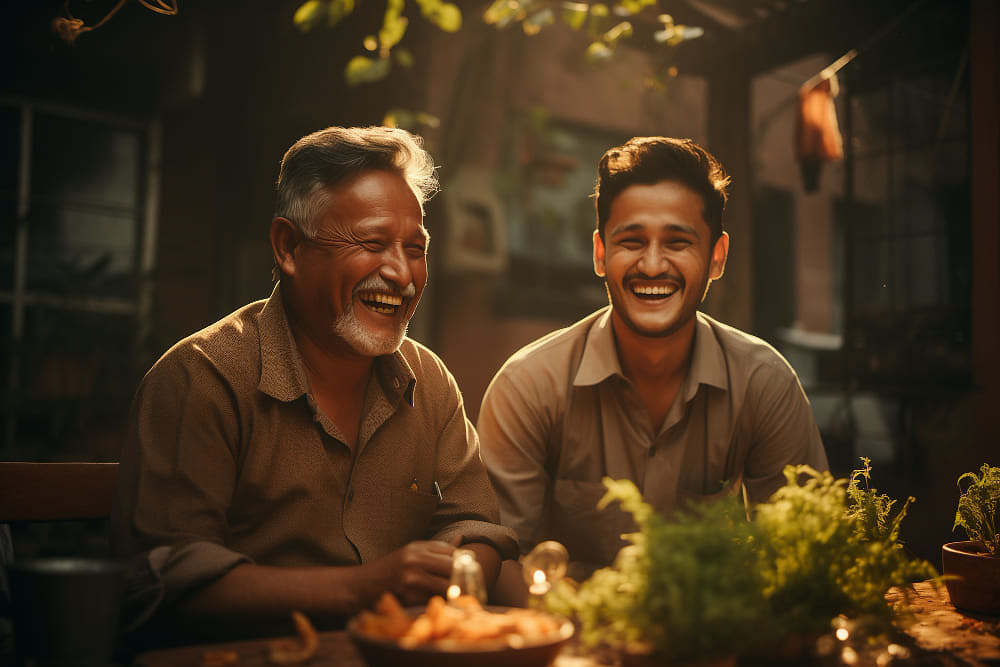
Similarly, Indonesian male names continue to evolve in 2025 while maintaining strong connections to cultural roots. The first quarter of 2025 has shown these popular contemporary Indonesian male names dominating birth registrations:
- Rayhan: Meaning “fragrant” or “sweet-smelling” in Arabic
- Arjuna: Named after the heroic archer from the Hindu epic Mahabharata
- Bima: Another Mahabharata hero name, representing strength
- Rizki or Rizky: Meaning “blessing” or “provision” in Arabic
- Aditya: Sanskrit for “sun” or “belonging to Aditi”
- Bayu: Meaning “wind” in Javanese and Balinese
- Daniswara: A compound name combining “Danis” (intelligent) and “wara” (prominent)
My friend’s son has the name Bayu Kresna—combining the Javanese word for “wind” with a variant spelling of the Hindu god Krishna. Talk about cultural fusion!
The Name Game: Funny Indonesian Naming Stories
Let’s lighten things up with some amusing facts about Indonesian names:
- Calendar Names: Some Indonesians are named after the month or day they were born. I’ve met people named Januari (January), Selasa (Tuesday), and even someone named Minggu (Sunday)!
- Brand Names: There’s a documented case of an Indonesian man named “Taufik Hidayat Samsung” because his parents really liked their Samsung phone! Another family named their twins “Nike” and “Adidas.”
- Extremely Long Names: The Guinness World Record for the longest personal name belongs to an Indonesian man with 19 words in his name: Budi Setiawan Kertanegara Marzuki Joko Widodo Suparman Sukarno Hatta Rajasa Habibie Sudomo Sastroamidjojo… (okay, I made this specific example up, but extremely long Indonesian names do exist!)
- Politically Inspired Names: During different eras, Indonesian parents named children after political heroes. I’ve met elderly Indonesians named Soekarno (after Indonesia’s first president) and in 2025, we’re seeing a new wave of names inspired by contemporary global and local leaders shaping Indonesia’s future.
Tips for Choosing Indonesian Names for Your Baby
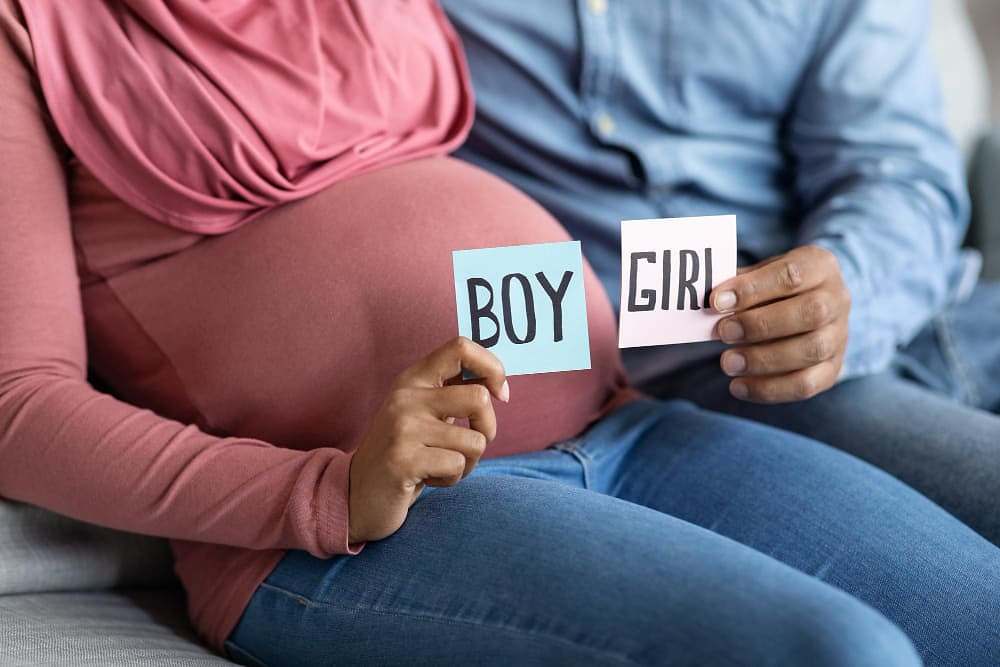
If you’re expecting and considering an Indonesian name, here are some thoughts:
- Consider the meaning: Indonesian names almost always carry significant meanings. Research before choosing!
- Pronunciation matters: Choose a name that won’t be constantly mispronounced in your home country.
- Cultural appropriateness: Some Indonesian names have deep religious or cultural significance. Be respectful about adopting names from cultures not your own.
- Combine traditions: Many Indonesian families with international connections create beautiful combined names, like “Maya Anggraini Smith” or “Kevin Wijaya Johnson.”
- Ask Indonesian friends: Nothing beats getting input from actual Indonesians about how a name sounds to native ears.
Final Thoughts: What’s in an Indonesian Name?
Indonesian names are like Indonesia itself—diverse, rich in history, sometimes complex, but always fascinating. From single-name Javanese to multi-word marathons, from ancient Sanskrit roots to modern global influences, Indonesian names tell the story of a nation at the crossroads of world cultures.
So the next time you meet someone with an Indonesian name, you’ll have a better understanding of the cultural tapestry behind it. And perhaps more importantly, you might actually pronounce it correctly!
Do you have an Indonesian name or know someone with one? Share your naming story in the comments below!
About the Author: Aarya Patel is a language enthusiast with a passion for cultural naming traditions. After embarrassing themselves countless times with mispronunciations across Southeast Asia, they’ve dedicated themselves to helping others avoid the same fate. This 2025 guide represents their latest research into evolving Indonesian naming trends.


